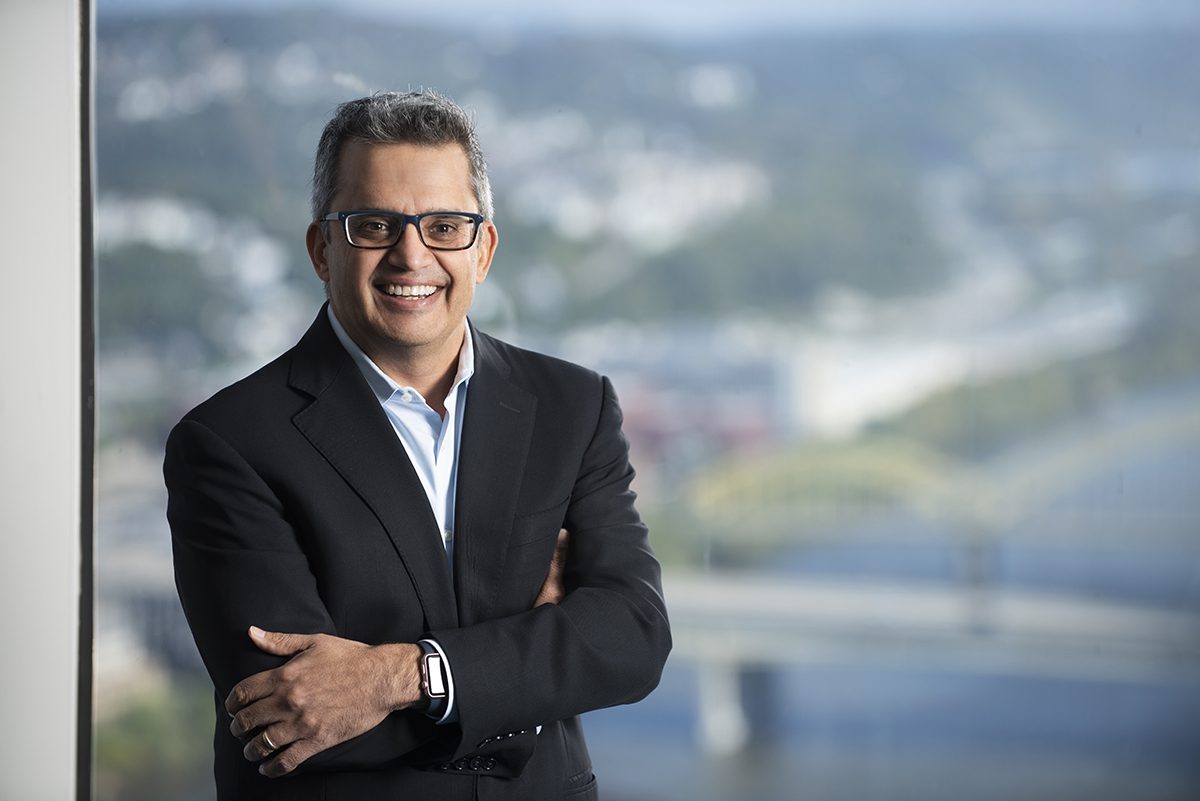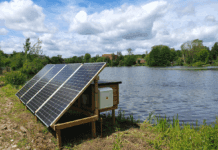
With water undergoing a transformation, industrial end-users are increasingly embedding sustainable solutions within their operations. Snehal Desai, chief growth and sustainability officer at Evoqua Water Technologies, who is leading an end-user session at BlueTech Forum 2022, says change need not be daunting.
What are the biggest issues driving the need for change in water?
We have been thinking about this topic a lot at Evoqua, and we see three big macrotrends – climate and water risk, health and safety and connectivity. Water and climate risk are at the top of the list. Water is the primary medium through which we will see the effects of climate change, via less predictable water availability, increased flooding threatening water points and sanitation facilities, and exacerbated water scarcity.
There is a lack of infrastructure and what we do have in place was not built for the kind of water stresses we are witnessing and will see in the future. Substantial amounts of infrastructure will require upgrades or replacement in the coming years. Additionally, our traditional sources of water may not be sufficient. We will have to come up with more flexible means of reusing water, taking what was previously impaired and converting it into something usable.
The second big issue is public health and safety. Safe and available water is fundamental to the health and wellbeing of life on earth. Over two billion people live in areas with scarce or compromised water supplies. It is not getting better – we are not going to be able to rely on conventional means.
The final trend we are observing is connectivity – the opportunities available to us by technologies such as digital sensors and remote monitoring. We are using the Internet of Things (IoT) to help us become more efficient. Frankly, these tools are becoming a stopgap, where we have a growing labor and talent shortage in the industry. That coupled with our insatiable need for devices, data centers, and microchips means a whole ecosystem around connectivity will continue to drive business over the next several decades.
In terms of their sustainability journey, what solutions are industrial end-users looking for?
The technologies they were able to employ in the past are not necessarily sufficient now. Whether they are from the microelectronics industry, food and beverage, healthcare or power, company needs are different but many of the challenges they face are the same. That is, they see the reality around scarcer and lower quality water supplies, and the actions they must take to maintain supply and quality are changing.
Our customers ask, what happens when we put aside our linear thinking – sourcing, using and discharging water – and start considering recycling and reuse efficiencies? More and more customers are looking for technology that can help establish a viable pathway for sustained operations and new ROI models to help justify these investments.
We established our Innovation and Sustainability Hub in Pittsburgh, Pennsylvania, USA, in October 2021, which enables us to further support our customers in achieving their sustainability goals. The 18,000 square-foot facility features a hands-on demonstration and training area, pilot testing capabilities, and a state-of-the-art laboratory, increasing our analytical and feasibility study capabilities. It allows us to apply both known water technologies that we have in our portfolio and bring in newer technologies to be able to properly test them to ensure they are fit for purpose and scale.
What opportunities should the water sector be embracing to help tackle future challenges?
We are starting to see it happen already – the opportunity for the water sector to collaborate not only across its value chain but in many different markets. If not properly placed in the system, an incremental or even a breakthrough improvement may not have the impact it should. We can have the greatest impact if we work more closely together.
BlueTech Forum 2022, of which Evoqua is a sponsor, has the theme radical collaboration for regeneration. How does this theme align with your approach?
The BlueTech Forum theme aligns closely with how we approach our work in the market. Bringing people together to discuss critical water issues is always a good thing and we have not been able to do enough of that in the past two years. We are excited about collaborating with like-minded people in person in Vancouver in June.
Being part of the forum is an opportunity to refocus and be more radical in our thinking. It will also allow us to explore our vision of regeneration. Having common definitions and language will mean we can better align on action and solutions.
The water community is on a sustainability journey and BlueTech Forum provides a platform for us to learn from each other. We are all part of a critical movement and connecting with key thought-leaders enables us to maximize our contributions and impact.
What innovation challenges or opportunities do you expect to be raised in the Evoqua-sponsored end-user session?
We hear from our end-user customers that they are challenged with establishing the business case for change. They recognize there are opportunities, whether it be an economic return on investment or their environmental impact. Being able to properly scope and scale the available solutions is becoming a primary topic of interest.
We should also consider, do we have a way to speak with one voice to help customers navigate this space together? I think there is an opportunity for the water sector on how we better communicate to the market.
What would a successful end-user discussion look like to you?
For me personally, establishing partnerships, dialogues and collaborations that would not have otherwise been spurred, will be a fantastic outcome. I really get energy from connecting with people that are in the water industry, but not necessarily part of my typical working day. Meeting with people with different perspectives on the same topics helps me gain perspective on the industry.
If participants leave the session feeling undaunted by the journey ahead and learning from others’ real-life situations, I would consider that a success.
You are also hosting a roundtable on the role of water in achieving carbon targets. What do you think participants will be called to consider?
From the audience that is coming together, I am hopeful they are already aware of the water industry’s role in achieving net-zero carbon. This would be an opportunity to reground on that very notion if they are not.
When it comes to energy consumption, whether it is pumping, treatment, or the management of water, with more efficient ways of managing our systems, we have an opportunity to make a contribution that is meaningful. We need to recognize the role the industry can play in mitigating climate change.
We are in 2022 – when we reach BlueTech Forum 2032, where do you expect the industry to be?
I hope we will have moved past the conversation about what we should do, and we are talking about the actions we are taking and the impact we are having. Of course, we will need to continue to evolve, however by 2032, I expect us to be well into our transformation.
Snehal Desai will introduce the end-user opening session and lead a roundtable on the role of water in achieving carbon targets at BlueTech Forum, which takes place at the Vancouver Convention Centre, Canada, on 7-8 June 2022.
More details https://www.bluetechforum.com/






